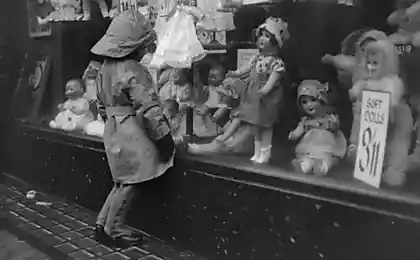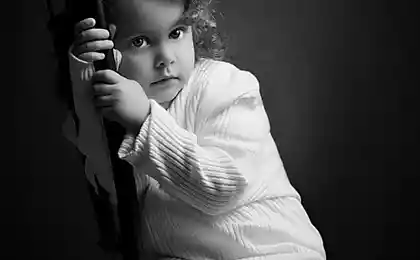535
Does Your child know about how and why You appreciate it?
Shaping children's self-esteem in two different ways: verbal and non-verbal.
The verbal message is what we Express through words. Of course, they can be both positive and negative. Parents rarely celebrate the good side of their child, focusing on his faults.Therefore, you should consider: does your child know about how and why you appreciate it?

Here, for example, one mom about her daughter: "she is a kind, good friend, honest, loves cleanliness and order, excellent student, great cook, understands the younger". Then she writes: "At the time, I decided that it should be that this is normal behavior, so I never talked to her about her qualities. I never told my daughter about it, and today will tell!".
If you ask your child what qualities he likes in himself, he would call one or two, but then the question will cause him trouble. If they ask about what he needs to improve, he will easily name a long list of his faults. He knows from parents and educators — and it's not bad! But it is very important that our children know about themselves and the positive qualities and traits that they have. After all, it creates just the most positive self-image!
Think about how many different qualities and traits can be the child. Look how happy, warm, pleasant rain can overwhelm the child: inquisitive, bystrooborachivaemy, sociable, kind, stubborn (in a good way), smart, affectionate, stubborn, generous, aspiring to leadership, diligent, persistent, cheerful, clever, honest, responsible, caring, energetic, loyal, good friend, understanding, cheerful, cheerful, calm, brave, artistic, smiling, smart, funny, with a great sense of humour, economic, understanding, active... I'm Sure that every child can distinguish a lot of positive qualities! Tell your children about their strengths. Be sure that the child knows about it!
Therefore, the task of every parent — every day to talk to the child about his / her positive qualities. If the child will hear about yourself is good, it will about themselves to think so, and over time his behavior will be more consistent with the image you created. For example, if a child hears about himself that he is a good friend, you will learn that, as part of its self-assessment as part of their "self-image". He will know that he is really a good and reliable friend. Children are unable to guess, so don't forget to talk specifically, what qualities inherent in the child that he is all about himself knew.published
Author: Catherine KES, "the Secrets of education"
P. S. And remember, only by changing their consumption — together we change the world! ©
Join us in Facebook , Vkontakte, Odnoklassniki
Source: vk.com/ekaterina_kes?w=wall-6084434_4037
The verbal message is what we Express through words. Of course, they can be both positive and negative. Parents rarely celebrate the good side of their child, focusing on his faults.Therefore, you should consider: does your child know about how and why you appreciate it?

Here, for example, one mom about her daughter: "she is a kind, good friend, honest, loves cleanliness and order, excellent student, great cook, understands the younger". Then she writes: "At the time, I decided that it should be that this is normal behavior, so I never talked to her about her qualities. I never told my daughter about it, and today will tell!".
If you ask your child what qualities he likes in himself, he would call one or two, but then the question will cause him trouble. If they ask about what he needs to improve, he will easily name a long list of his faults. He knows from parents and educators — and it's not bad! But it is very important that our children know about themselves and the positive qualities and traits that they have. After all, it creates just the most positive self-image!
Think about how many different qualities and traits can be the child. Look how happy, warm, pleasant rain can overwhelm the child: inquisitive, bystrooborachivaemy, sociable, kind, stubborn (in a good way), smart, affectionate, stubborn, generous, aspiring to leadership, diligent, persistent, cheerful, clever, honest, responsible, caring, energetic, loyal, good friend, understanding, cheerful, cheerful, calm, brave, artistic, smiling, smart, funny, with a great sense of humour, economic, understanding, active... I'm Sure that every child can distinguish a lot of positive qualities! Tell your children about their strengths. Be sure that the child knows about it!
Therefore, the task of every parent — every day to talk to the child about his / her positive qualities. If the child will hear about yourself is good, it will about themselves to think so, and over time his behavior will be more consistent with the image you created. For example, if a child hears about himself that he is a good friend, you will learn that, as part of its self-assessment as part of their "self-image". He will know that he is really a good and reliable friend. Children are unable to guess, so don't forget to talk specifically, what qualities inherent in the child that he is all about himself knew.published
Author: Catherine KES, "the Secrets of education"
P. S. And remember, only by changing their consumption — together we change the world! ©
Join us in Facebook , Vkontakte, Odnoklassniki
Source: vk.com/ekaterina_kes?w=wall-6084434_4037
























